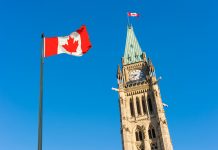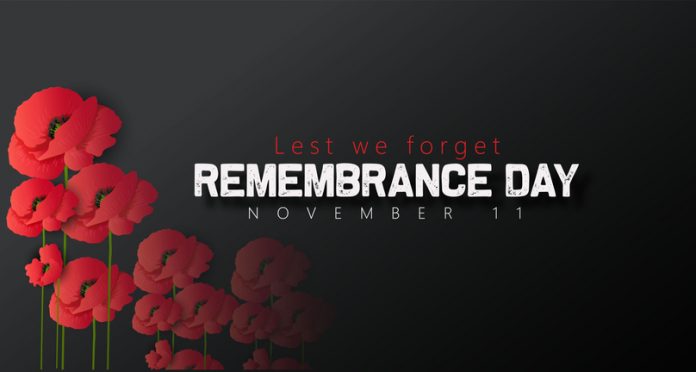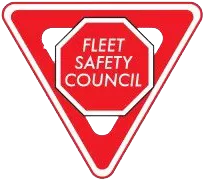This week we remember those who served with our forces to protect the peace and freedom we enjoy in Canada and other nations too. Sometimes in the mayhem of our day-to-day lives, it becomes too easy to forget how lucky we are. Our tranquil Canadian life did not come easily or without cost. For more than a century, thousands of Canadian soldiers and those from sister countries have braved the inhumanities and cruelties of war to protect our rights and freedoms. Too many of them gave life or limb. They are now dead and silent. Canada, would not be the country it is today without their commitment or the sacrifices they gave. We pause in solemn respect to honour them each Remembrance day.
The poppy has become a symbol of their sacrifices and helps us to connect to them. Wearing a poppy shows them the respect they deserve.
The connection to the poppy and its symbolism of remembrance began following WWI.
It was on the 11th hour of the 11Th day and the 11th month of 1918 when WW1 officially ended. Germany signed an armistice agreement with the Allies. That long, cruel, and bloody war was finally over. The First World War left nine million soldiers dead and 21 million wounded. At least five million civilians were dead from disease, starvation, or exposure. At the time, Canada’s population was about that of Toronto today. One in 12 Canadians had gone to that war, and more than 175,000 had been wounded. More than 66,000 were buried in Europe and would never return home.
One such Canadian who was buried in Europe was Lieutenant-Colonel John McCrae. He was a poet, physician, author, artist, and soldier from Guelph. He is credited with writing one of the most poignant poems ever written, “In Flanders Field”.
McCrae grew up in a military family and believed in the duty of fighting for his country and empire. He had already served in the Boer War, but then at the age of 41, he bravely volunteered for a second tour of duty and went to Europe to fight. Soon, his skills as a surgeon were needed, attending to the sick and dying along the front lines in this ugly and bloody conflict.
In April 1915, he was on the battle lines in Ypres in Flanders, Belgium. The German army launched one of the first chemical attacks in the history of war. They attacked French lines next to the Canadians’ position with chlorine gas. The Canadian line held for over two weeks. In a letter to his mother, McCrae described the battle as a “nightmare”. He wrote, “For seventeen days and seventeen nights, none of us have had our clothes off, nor our boots even, except occasionally. In all that time while I was awake, gunfire and rifle fire never ceased for sixty seconds. And behind it, all was the constant background of the sights of the dead, the wounded, the maimed, and a terrible anxiety lest the line should give way.”
Alexis Helmer, a close friend of McCrae’s was killed during the battle. McCrae performed the burial service himself, at which time he noted how poppies quickly grew around the graves of those who died at Ypres. The next day, he composed the poem while sitting in the back of an ambulance.
Legend has it that McCrae was not satisfied with the poem. It is said, he crumpled the paper and threw it away. A fellow member of his unit retrieved the paper and poem and convinced McCrae to submit it. “In Flanders Fields” was published by “Punch” magazine in December 1915.
In his poem, he speaks for the dead amid the angst and tragedy of the ongoing battle. Solemnly they ask the surviving to carry on in their stead.
McCrae was troubled throughout his life with asthma and would later die of pneumonia in January of 1918 while still on the front lines of France. He is a hero for the dead and a reminder to the living.
Though WWI is more than a hundred years behind, the horrors of war and the fight for freedom continue to this day. We need only read the headlines from Ukraine or Africa and Asia. There are 110 armed conflicts around the world monitored by the Geneva Academy. Will we ever learn?
Let us remember all of those who were there for us without ever knowing us. Thank you to Lieutenant Colonel John Mcrae for being their voice so we can feel and hear them echoing in our hearts today.
In Flanders Fields In Flanders Fields, the poppies blow Between the crosses, row on row, That mark our place; and in the sky The larks, still bravely singing, fly Scarce heard amid the guns below. We are the dead. Short days ago We lived, felt dawn, saw sunset glow, Loved and were loved, and now we lie, In Flanders fields.
Take up our quarrel with the foe: To you from failing hands we throw The torch; be yours to hold it high. If ye break faith with us who die We shall not sleep, though poppies grow In Flanders fields.





















